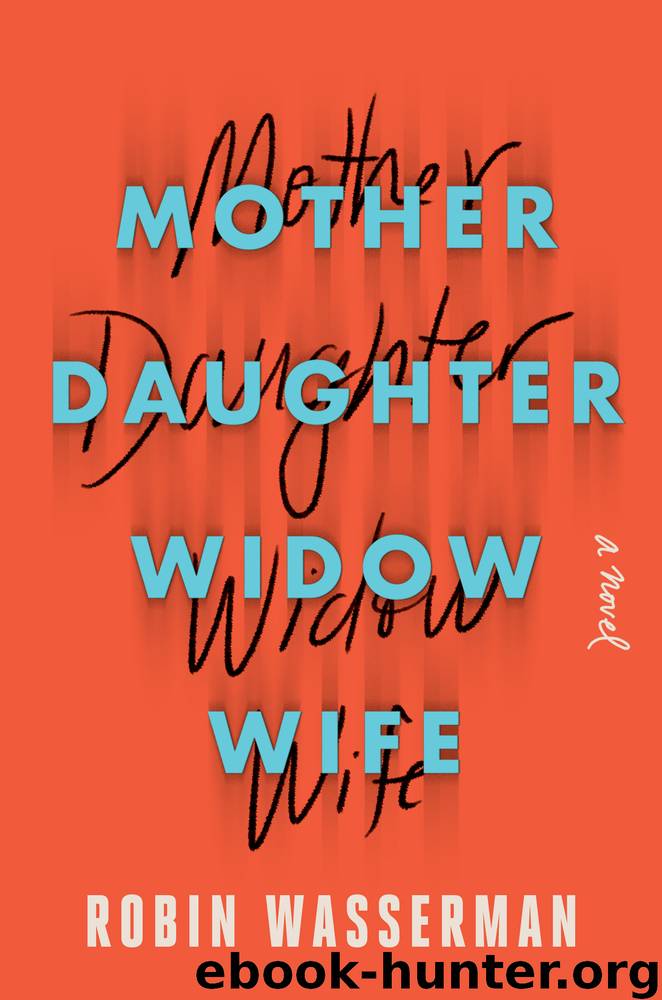Mother Daughter Widow Wife by Robin Wasserman

Author:Robin Wasserman
Language: eng
Format: epub
Publisher: Scribner
Published: 2020-07-06T16:00:00+00:00
* * *
This was how she filled the time without him: she shadowed Wendy Doe. They went to the movies; they watched TV. Wendy explored the grounds, traced the names on graves, made snow angels; Lizzie took notes. Wendy talked with Anderson; Lizzie took notes. Wendy tried an exercise class, tried a cooking class, tried sushi; Lizzie took notes. Wendy took up smoking, as a habit; Lizzie took her to task, lectured her on her responsibility to the body and its safety, then acquiesced, lit one of her own, took notes.
In November, Strauss gave a colloquium for the fellows and postdocs, a glimpse into the project he’d not yet made public but that he hoped would be the centerpiece of his career. She knew this because he had asked her to read the paper before he delivered it; he had wanted her opinion on his words, his work. He was nervous, and he had confessed this to her. Watching him at the podium, confident and charming, she felt like she knew a secret.
“William James tells us, ‘Memory requires more than mere dating of a fact in the past. It must be dated in my past. In other words, I must think that I directly experienced the occurrence.’ My challenge for good old Will, for all of you: Must I? Says who? Imagine,” he said, and looked down at the paper so rarely it seemed less like he was reading than that he was inventing possibilities on the fly. “Imagine if you could experience your worst memories as if they happened to someone else. Imagine the freedom—from sorrow, from trauma, from pain—if we could divorce memory from emotion, drain the past of its power to shadow the present.”
The fellows, seated beside her, were rapt. Even Lizzie, who’d heard the rehearsal, who knew what was coming, felt slightly spellbound as Strauss shifted gears from his current research to blue sky, stratosphere. He was convinced, he said, that memory consolidation—the process of the brain turning experience into long-term memory, encoding the detail and emotions that would be remembered, streamlining away that which would be forgotten—persisted over time. That memories were altered and reconsolidated with each retrieval. In other words, a memory could be changed by the remembering of it. Imagine, Strauss said, that this alteration could be controlled. Imagine the future, a modulation of amygdaloid participation, the severing of memory from self, that we could remember a better past than we’d lived, or remember our pain as if it had been suffered by a stranger, a story once heard that could do no harm.
After the applause, Lizzie lingered, hoping Strauss might catch her eye, beckon her over, and he did. He wanted to introduce her to someone, he said. The elegant blonde standing beside him with ballerina posture and a body to match extended her hand. “My wife,” Strauss said to Lizzie. “My protégée,” to the wife. A tiny child peered sullenly from behind the woman’s legs.
“And the little munchkin here is Nina,” the wife said.
Download
This site does not store any files on its server. We only index and link to content provided by other sites. Please contact the content providers to delete copyright contents if any and email us, we'll remove relevant links or contents immediately.
In Control (The City Series) by Crystal Serowka(35361)
The Wolf Sea (The Oathsworn Series, Book 2) by Low Robert(33847)
We Ride Upon Sticks by Quan Barry(33288)
Crowbone (The Oathsworn Series, Book 5) by Low Robert(32333)
The Book of Dreams (Saxon Series) by Severin Tim(32240)
The Daughters of Foxcote Manor by Eve Chase(22290)
Trainspotting by Irvine Welsh(20055)
Call Me by Your Name by André Aciman(18965)
Shot Through The Heart (Supernature Book 1) by Edwin James(17927)
The Secret History by Donna Tartt(16624)
The Girl from the Opera House by Nancy Carson(14986)
Sad Girls by Lang Leav(13353)
American King (New Camelot #3) by Sierra Simone(12983)
Pimp by Iceberg Slim(12931)
All the Missing Girls by Megan Miranda(12749)
The Betrayed by Graham Heather(11698)
The Betrayed by David Hosp(11671)
4 3 2 1: A Novel by Paul Auster(11049)
Still Me by Jojo Moyes(9903)
